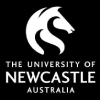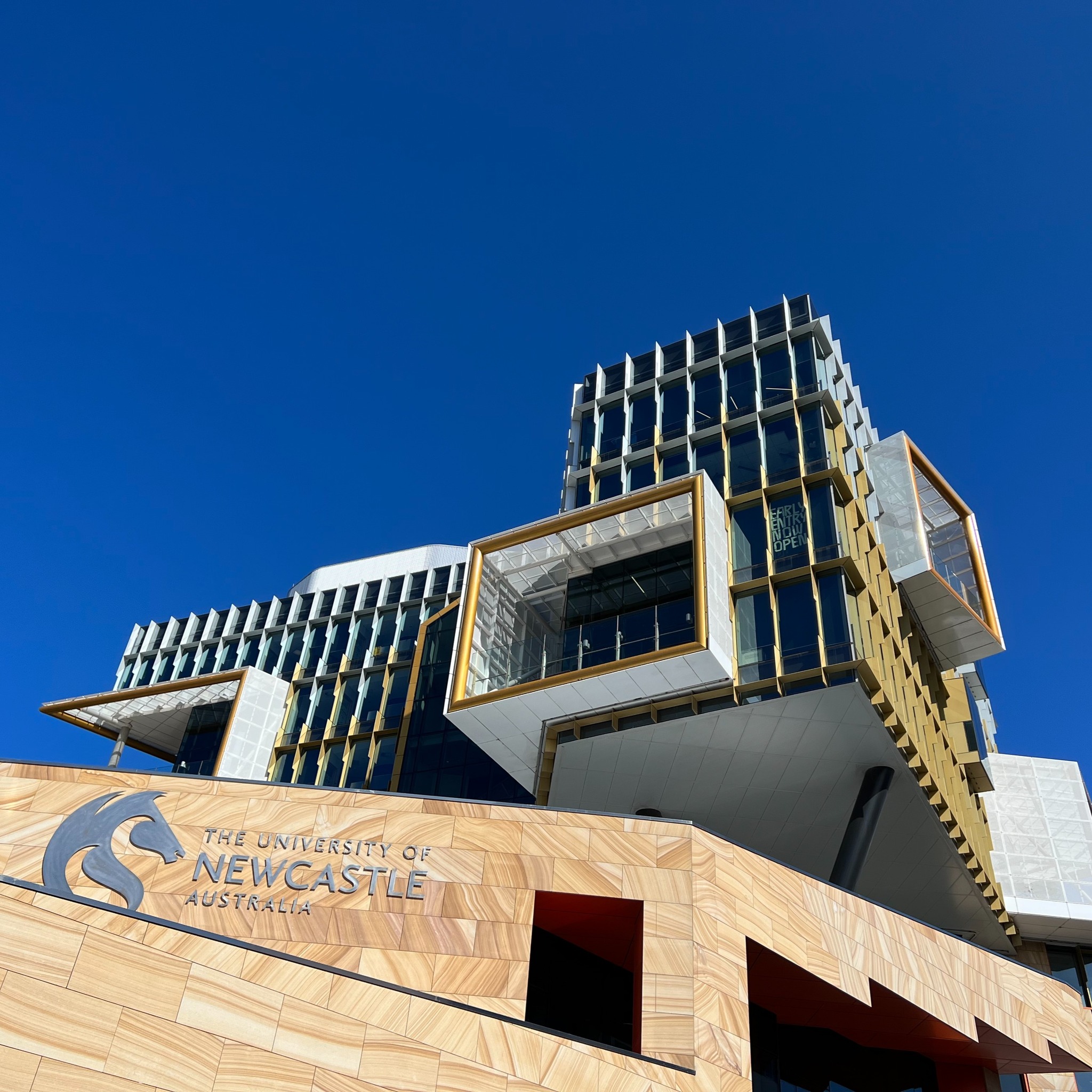55 Elizabeth Street, Sydney NSW 2000, Australia
Career Counselling

The University of Newcastle is an institution of higher learning in Australia that prides itself on excellence in education and research, with a focus on the student experience. With over 39,000 students and over 5,000 international enrolments, it achieves consistently high rankings in the fields of industry collaboration and sustainable partnerships.
UON has five campuses in Australia, and one in Singapore. The Australian campuses include two in the city of Newcastle, including the original sprawling Callaghan location, which combines almost 350 acre...
| Establishment year | 1965 |
| Total Students | 39,096 (2021) |
| International Students | 5,242 (2021) |
| QS World University Rankings 2024 | =173 |
| Campus Size | N/A |
| Total Number of Campuses | 6 (5 in Australia, 1 in Singapore) |
| University Website | https://www.newcastle.edu.au/ |
| No. of Schools and Divisions | 3 Colleges (Engineering, Science and Environment, Health, Medicine and Wellbeing, Human and Social Futures) |
| Nobel Prize Winner Alumni | 0 |
| No. of Education Programs | 153 (undergraduate), 105 (postgraduate) |
| Student to Faculty ratio | 34:1 (2021) |
The University of Newcastle offers undergraduate and postgraduate courses through 3 Colleges, which are further subdivided into 13 Schools.
All undergraduate applicants - domestic or international - to UON must have successfully passed an examination equivalent to New South Wales' Higher Secondary Certificate. International students can refer to the list of accepted qualifications to check their respective minimum performance criteria. In certain specific cases, UG applicants can also submit diploma certificates. Course-specific requirements can include portfolios and auditions, for certain courses in the Arts.
International applicants must also provide evidence of their proficiency in the English language by submitting IELTS or TOEFL scores. Different courses have different minimum requirements for performance in these tests. In case a student cannot meet the minimum eligibility criteria, the Language Centre at UON acts as a learning bridge.
Postgraduate applicants (domestic and international) need to hold an undergraduate degree from a recognised institution, with a required level of performance that varies by course; additional requirements like a CV, a portfolio, or an interview may also apply for certain programs.
Most students enter UON in Semester 1, which starts in February or March every year; therefore, the steps given below are usually completed during the last few months of the year.
Domestic undergraduate applicants should submit their applications to UON through the Universities Applications Centre (UAC). This allows for up to five preferences to be filled, and candidates are recommended to make their submissions by late September to avoid paying extra fees. Decisions are usually released by the end of December. Once an offer is received over email, it must be accepted or rejected within seven days.
Postgraduate and international candidates submit their applications directly to the University, through the online application form. The process involves the following steps:
Tuition fees for undergraduate international students vary by course. The University maintains a full database of indicative amounts: annual tuition fees range from $30,000 (Bachelor of Arts) to $41,130 (multiple Engineering Honors courses) to $70,585 (Bachelor of Medicine). The fees for most courses are between $30,000 and $40,000 per year.
A similar document is created every year to provide indicative annual tuition fees for international postgraduate students (though exact fees may vary slightly as students take fewer or more units per semester). The Doctor of Medicine degree has the highest fees, at $78,577 per year. Most other courses charge within 10% of $40,000 per year as tuition fees, with even the MBA degree set at $41,050, substantially less than a similar degree in other top Australian universities.
Undergraduate domestic students have their tuition fees subsidized to a large extent by the Government, under the Commonwealth Supported Place (CSP) scheme. The student contribution fee in CSPs is one of these amounts: $4,124 (for programs like Education, Humanities, Mathematics, and Statistics), $8,301 (for most Engineering and Science programs), $11,800 (for programs related to Medicine and Surgery), and $15,142 (for programs like Business, Law, and Marketing).
Most postgraduate domestic students pay Domestic Tuition Fees for their courses; these are substantially higher than the student contribution amounts that all domestic undergraduates pay. These are lower than the international equivalents: most PG courses have domestic tuition fees between $20,000 and $30,000 per year, compared to a corresponding range of $30,000 to $50,000 for overseas postgraduate students.
In addition to tuition fees, the University also charges a Student Services and Amenities Fee, capped at a maximum of $326 for 2023.
In terms of living costs (accommodation, food, travel, personal items, and entertainment), the University recommends that students set aside $4,000 for their first month; subsequent monthly budgets amount to approximately $2,000.

UON has five campuses in Australia and one overseas location in Singapore. Callaghan, the original campus, is situated in the city of Newcastle. It occupies 346 acres and features natural beauty and architectural marvels. It is the central node for academic and research activities in most areas of study, from the humanities to science to medicine to engineering. The Newcastle City Campus is located in the Central Business District of the city, and is home to business, law, and innovation activities, with the iconic Q Building providing a distinctive visual centerpiece. The Central Coast campus is located between Newcastle and Australia’s largest city of Sydney. The campus in Sydney is located in the heart of the city, and offers cutting edge business and IT courses. The Port Macquarie campus offers postgraduate courses. The Newcastle Australia Institute of Higher Education in Singapore offers unique courses like the Master of Health Economics, Management, and Policy.
Keeping physically active and fit is a way of life at UON. The Active Travel campaign seeks to share resources and inspire all members of the university community to travel to campus either on bicycles or by foot, and provides data on cycle hubs and shower points. Sporting and fitness facilities, like the Forum at the Callaghan campus or gyms in various other locations, help novices and experienced athletes take part in sports fixtures, groups fitness classes, and individual exercise. The HealthyUON initiative seeks to increase the wellbeing of the staff and students by setting up activities that positively influence physical, mental, and spiritual health.

NUSport manages all sporting facilities and matches on campus. It is the umbrella organization for all the sports clubs at UON, and helps students at all skill levels take part, stay active, level up skills, and experience leadership. Social sport is a major part of campus life, with fixtures occurring six nights every week across eight sports: this is the primary mechanism for students at the University to make new friends. At the highest end of the skill spectrum, UniSport Nationals help elite athletes represent UON against the other top universities in Australia.
The University of Newcastle's Career Service assists all current students and alumni with resources and guidance in three main areas: part time work during the degree, gaining clarity on the best fit career options, and connecting with potential employers and finding full time jobs. All students of the University can access the services online: in person meetings are available in three of the main campus locations. Four primary services are provided:
UON awards over $4 million annually in scholarships to students based on excellence and financial or social disadvantages. Details of over a hundred scholarships are available on the dedicated University page. A few highlights follow:
